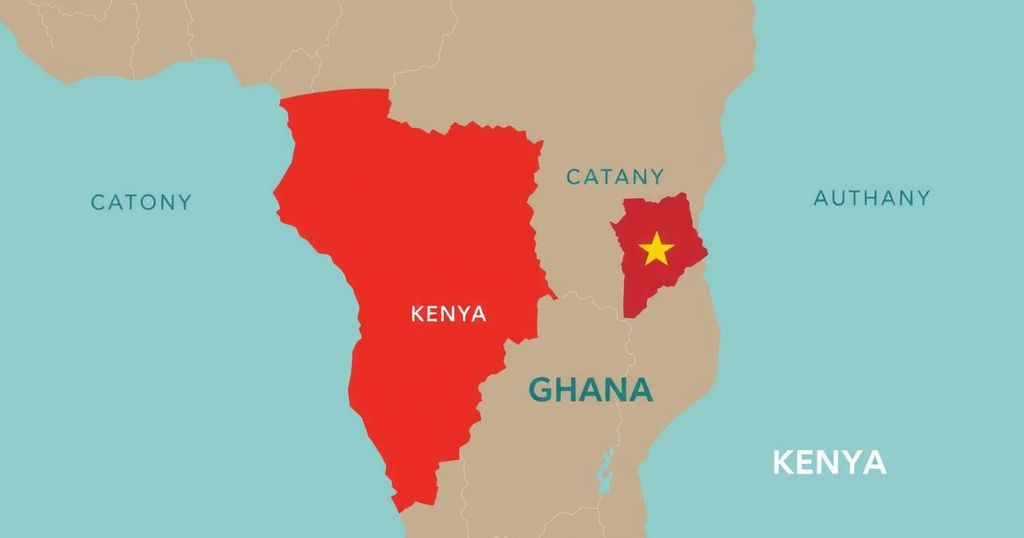Kenya’s diplomatic issues in Ghana expose significant rifts in President Ruto’s administration, as two ambassadorial nominees have publicly declined their appointments within a year. This situation has raised concerns about the country’s foreign policy coherence and the effectiveness of executive vetting processes. Criticism from Parliament suggests deeper issues in coordinating diplomatic efforts.
Kenya’s diplomatic missteps in Ghana have revealed significant fractures within President William Ruto’s administration. In a highly unusual instance, two consecutive ambassadorial nominees have publicly rejected their appointments within less than a year, raising concerns regarding the coherence of Nairobi’s foreign policy. The High Commission in Accra is facing scrutiny following these incidents, which have embarrassed Ruto’s administration.
Former Member of Parliament Vincent Kemosi declined his appointment to Accra in April 2024, citing personal reasons for his rejection. Less than a year later, ICT Minister Margaret Nyambura also turned down the posting, attributing her decision to family obligations. These dual refusals have prompted criticism from Parliament, highlighting flaws in the vetting process within the executive branch.
The Defence, Intelligence, and Foreign Relations Committee of the National Assembly, led by Ruto ally Nelson Koech, criticized the presidency for a lack of thoroughness in its vetting procedures. In a report issued in January, the committee noted that these rejections reflect a failure in the due diligence process utilized by authorities recommending candidates for appointments.
Accra holds significant status, as Ghana is pivotal to Kenya’s Pan-African initiatives and economic diplomacy efforts. Mishandling such an esteemed appointment potentially damages Kenya’s diplomatic credibility while undermining its pursuits of continental influence and leadership within organizations like the African Union and BRICS.
Diplomatic sources suggest that the nominations may have been driven by political motives rather than strategic considerations. Nyambura’s reassignment has been interpreted as an attempt at a tactical cabinet reshuffle that ultimately misfired. Rejections of high-profile postings can serve as public critiques of presidential decision-making and lessen the standing of Kenya’s foreign service.
Nairobi has previously encountered similar disarray; in 2018, Abdikadir Mohamed, a former MP and advisor, also rejected an ambassadorial assignment to South Korea due to a lack of consultation. These patterns indicate a recurring issue of political patronage overshadowing strategic diplomatic efforts. For President Ruto, whose ambitions involve economic realignment and regional leadership, these missteps in Accra raise pressing questions about the internal coordination and effectiveness of his administration.
The recent diplomatic failures in Ghana underscore deep-seated issues within President Ruto’s government, challenging the administration’s foreign policy coherence. With high-profile rejections from two ambassadorial nominees, concerns about the vetting process and political motives have emerged. These incidents not only reflect poorly on Ruto’s personal judgment but also raise critical questions about the strategic direction of Kenya’s foreign relations under his leadership.
Original Source: eastleighvoice.co.ke






